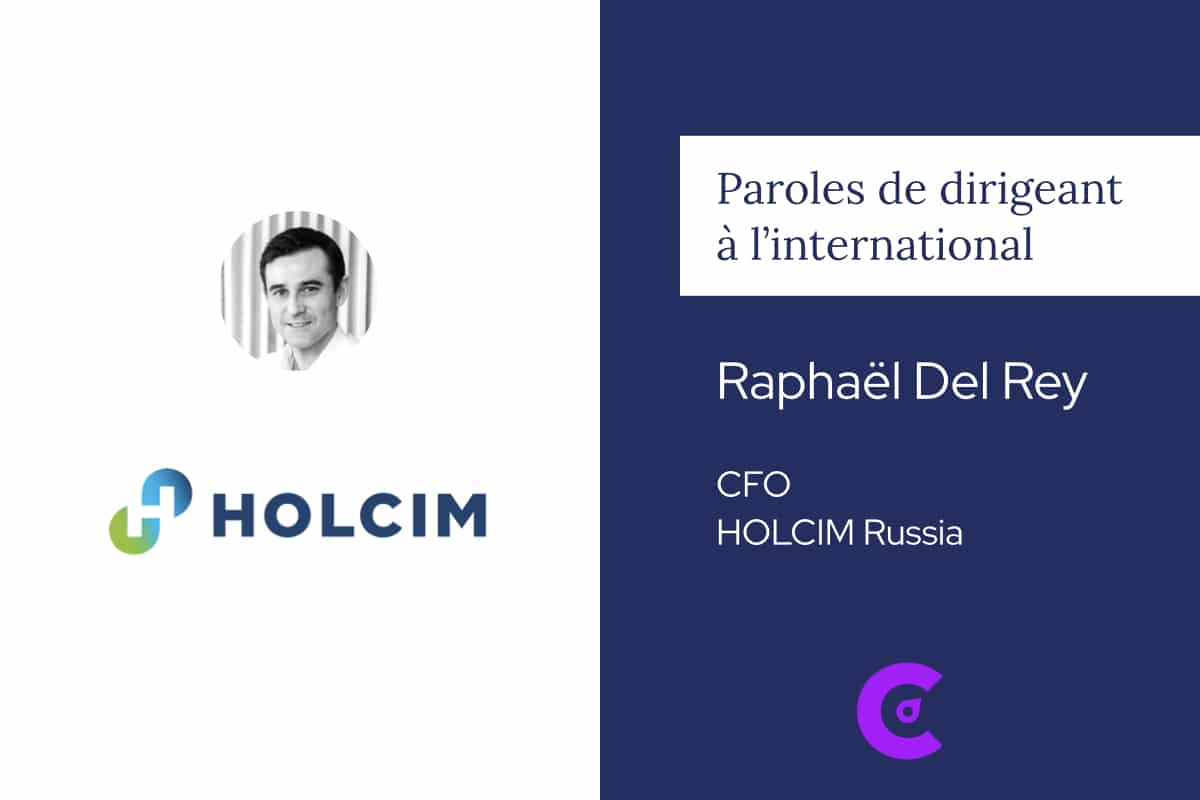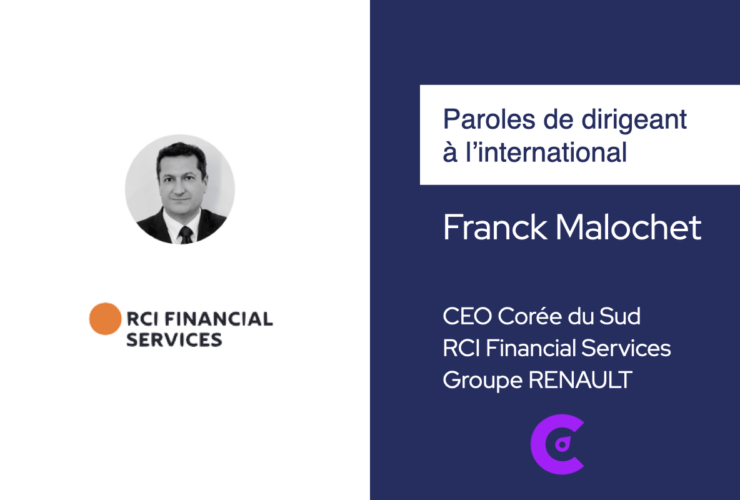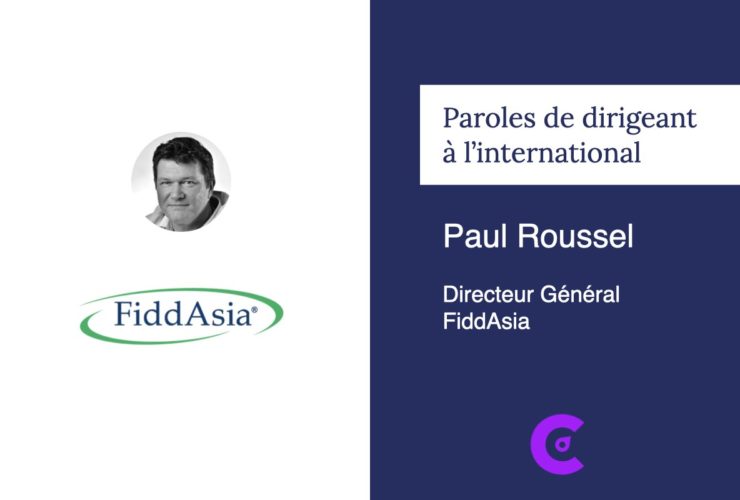International Executive are speaking
The keys to international business success
Raphaël Del Rey, Chief Finance Officer, Holcim Russia
“Expatriation is a transformation”
Raphaël Del Rey has a long career as an expatriate manager which has taken him to Bulgaria, France, Ukraine, Japan and Russia. He reveals to us what each of these countries taught him…
Some facts
2012 : Pernod-Ricard — DAF Ukraine
2015 : Pernod Ricard — Directeur Finances & Opérations Japon
2017 : Holcim — CFO Russie
Mail : raphael_del_rey@hotmail.com

Interview conducted by Antoine Leygonie-Fialko
Open dialogue then Executive Coaching session
according to the CO-CREATiVE Communication® method
I met Raphaël when he arrived in Moscow. I was immediately seduced by his taste for the human and the intercultural. I was admiring to see how his expatriation journey allowed him to develop a real manager-coach posture…
“Take the time to see the big picture”
Raphaël, what did you learn, in Bulgaria, from your first expatriation?
With Bulgaria, I experienced my first long stay abroad (12 months for Danone). It was a great cultural and managerial shock. In this culture of one of the countries of Eastern Europe, it seemed to me that everything was organized so that carrying out the tasks was impossible. I found a team that seemed to be waiting for the foreign manager to challenge him and say, “Go ahead, show us your powers”. In fact, it opened my eyes to the importance of understanding the expectations of employees from a country abroad vis-à-vis an expatriate manager. Because these expectations are often very different from the reasons why a large group will send an expatriate to these countries. Generally, the head office sends an expatriate when it wants to transform the local subsidiary and infuse it with the values of the group, stemming from a French universe far removed from the local environment. In large groups, there is also often a kind of desire to put the subsidiary “in the nails”, that is to say, to make it adopt the processes that have been thought out at headquarters, in particular to ensure transparency of information and to thwart traps and even fraud.
Thanks to this first stay in expatriation, I learned the scope of the expression “Think global, Act local“, that is to say the importance of taking the time to have a global vision of the situation to then let solutions arise, because these will then be much better than if we tackled the problem right away.
“In France, work seems to be a punishment”
How do you perceive France when you return?
I’m coming back to France to do a Franco-French career there, both in the public and in the private sector, where I forget almost everything I was able to learn in Bulgaria and where I return to a more familiar environment. By the way, I even lose my knowledge of English, because I no longer practice it. In my various positions, we do not need English. What a pity !
In the civil service, I received management training. At that time, the big message was: “In management, there is mobilization and motivation“. What was then called “mobilization” is what is now called “Command and Control” i.e. the manager is expected to tell the employee what he has to do and the leader limits himself to controlling the execution. Whereas “motivation” is finding tasks or arguments to make the employee want to do the task and bring a flame to their eyes.
And the trainer adds: “in the public service, focus mainly on mobilization”. In this culture, work seems to be a burden, a punishment: you have to do it and the manager is there mainly to control and to remind good officials of their obligations. As a result, I could see that there was a large part of the teams who had lost their motivation and were “waiting for it to happen”. What a contrast between the France of the civil servants and what I had been able to observe in Bulgaria, where I had been in contact with people whose eyes you could see the hope and the desire to progress, to be promoted and to to learn new things !
Then I move into the private sector, at Pernod Ricard. There, I discovered a very different world of management. I join a company in which the employees are very committed because the vast majority of them are very attached to the products, the brand and the culture of the company. And begins for me a new stage of life in expatriation.
“In Ukraine, only hire women!”
Raphaël, you then left for Ukraine for a CFO position. What do you learn in this country?
In Ukraine, I discovered a triple challenge: a professional challenge of adapting to a new function which required me to quickly learn the job of CFO; a challenge of adapting to a new culture; and a linguistic challenge since I arrive being the only employee of the company who does not speak Russian. To meet these three challenges, I immersed myself in a busy schedule in which I had to be able to do everything at once. For example, I was doing four hours of Russian a day: I was learning Russian during my lunch, I was learning Russian in the evening, and I was having a few meetings in Russian with a translator.
I also discovered an extremely endearing country, culture and company with very warm personalities. The “culture of conviviality” is the leitmotif of the Pernod Ricard group. The employees showed it well.
Finally, what struck me was how eager Ukrainian employees were for knowledge and skills from Western Europe. There was a very strong demand on their part to learn and understand. Open to every good practice from another country, the Ukrainians wanted to adapt and implement it. They said, “We want to learn. Tell us what to do, how to do it and we will do it. We are capable of it”.
In terms of management, have you identified any common points between Ukraine and Bulgaria?
A common point between Ukraine and Bulgaria concerns the place of women in the world of work. On several occasions, people I had interviewed before leaving had told me: “Only hire women because the men are there for their careers, while the women are there to make it work” . In other words, women do their job, and only then, depending on the results, do they expect recognition, while men are generally more career-oriented. They want a promotion first, before they start delivering results.
In Ukraine, I was struck by how feminine and competent my financial management team was. This allowed me to realize that gender issues are very much linked to the vision we have of them. For example, in France, at the time, we would have questioned the competence of a woman for a position of IT Director, Logistics Director or Production Director. But in Bulgaria or Ukraine, it is the opposite. We know that women are very competent in these functions, and in fact, they are very often more so than men.
What else do you learn about management styles?
In Ukraine, I read an article by Harvard Business Review, « Leadership that gets results »[i],
which was about management styles. My boss said to me, “Listen, look at this, it’s interesting. I notice that you tend to ask a lot of your teams. For a while your management style will work, but at some point people will burn out. I invite you to explore other management styles, it might be useful to you. By reading this article, I realized that the management model that had influenced me the most was that of the public service as it had been passed on to me by one of my very “demanding” General Managers. in the sense of “mobilization”. With him, it worked! Indeed, if we mobilize people a lot, at some point it makes sense, it attracts their attention, and the task becomes important for them, suddenly they get involved and we can enter a virtuous circle: by asking people to be more invested, this investment makes it possible to do more, which in turn restores the image of the service in the administration and allows people to feel more proud to belong to it. In the end, with this style of management applied to a team of civil servants, we came out on top.
But, moving into the private sector, without being very aware of it yet, I continued to use this model and to always ask more of my teams. Reading the HBR article, I discovered that there is not only one style of management but that there are several. According to the article, all styles are interesting. They all have a place, but not all at the same time. So you have to master several of them, you have to be able to use the one that is best suited to the situation and you have to know that there are certain styles that don’t work in the long term. If they are too present, they become counterproductive. And the one I used the most, the “pacesetting style”, was one of them. This article was a wake-up call: I had to manage differently.
That’s when I started getting interested in alternative management styles, like coaching and mentoring. However, I saw, in this very committed female population, a strong potential which did not have in my eyes the career development in connection with the investment and the quality of the work carried out. So I tried to create mobility. I sent a collaborative to Kazakhstan, I sent some to Russia. In doing so, I discovered that in fact the barrier on the potential was not so much in the structure of the company: the barrier was probably in themselves. There was a cultural ceiling that kept them from seeing (and even wanting) what others could do. This reinforced my desire to facilitate their career development.
[i] Harvard Business Review, Leadership That Gets Results by Daniel Goleman https://hbr.org/2000/03/leadership-that-gets-results
“In Japan, role trumps individuality”
Raphaël, you are then leaving for Japan, aren’t you?
For Japan, I was told “you cry twice, once when you arrive and once when you leave”. It turned out to be very true. Why do we cry when we arrive? Because in Japan, not only is there a language barrier, but it takes between six months and a year to adapt – compared to three months in a country with a Western culture. The entrance token in Japan has a higher adaptation cost than other countries. As a Westerner, you feel like an alien. Everything is really extremely different and English does not save us: the Japanese have a very low level of English, even lower than the French!
The most fundamental thing about Japan is that role trumps individuality because the society is Confucian. When you arrive in Japan, you must first understand your role and fulfill it well before being yourself. As a foreigner, to be accepted and to have satisfactory relations with my colleagues, I first had to understand my role and fulfill it. But the role that the Japanese give to foreigners is generally quite restrictive, that is to say that the foreigner must not meddle in Japanese affairs. The foreigner is not there to mediate between two Japanese. The stranger is there to talk to strangers. When you are Financial Director of an international company in Japan, according to the Japanese culture, you are not there to manage the employees nor to manage, for example, the relations between the teams of the Financial Department and the teams of the Commercial Department. In a Japanese subsidiary of a foreign group, there are two hierarchies: the Japanese hierarchy and the foreign hierarchy. In the foreign hierarchy, the leader is the expatriate CEO. But for the Japanese, the leader is the most senior Japanese in the highest position, in my case the Commercial Director. As a result, this double structure can lead to rather absurd situations in which certain important subjects are not discussed in the management committee so as not to be decided by the foreign CEO.
Also, I found that in the Japanese work environment, I had a kind of “bullshit counter” that counted the number of times I mentioned a good practice done in a foreign country. And as soon as I reached 10, people stopped listening to me. If I said, “Do you know that in India…” then no one would listen to me. Why that ? They just don’t listen because the Japanese have this presumption that something that works abroad can’t work the same way in Japan. So there is no point in trying to import a good practice from abroad to Japan, it will not work.
The Japanese will always do things differently, if only a little, for the principle. And if a good foreign practice seems to be really interesting, then it will have to be a Japanese who decides so that it is adopted. It cannot be a foreigner who decides. It is the Japanese who will decide that it is interesting and who will then “japanize” the good practice. In all this mechanism, the foreigner is useless. This created an emptiness in me that forced me to reflect on the theme “I have to stop ‘doing’ by myself. Besides, I don’t know anything, I can’t, I don’t know Japanese, I just do stupid things like an elephant in a china shop. So, I have to find a role that is only a leadership role: the role, not of the one who does, but of the one who understands, who knows the limits to his action and who is there to bring the values of the group. , adapting them, to find the best way in which they can express themselves”. Finally, I organized a lot of internal team-building events which turned out to be essential in detecting and then resolving – in the Japanese way of course – a harassment situation that had persisted for several years!
“In Russia, we are challenged to solve the unsolvable”
Raphael, now you are in Russia. Is this for you a return to the management practiced in Ukraine?
In 2017, I took a job as CFO at Holcim Russia. I come to this by saying to myself, “I already know Russian and the Slavic cultures. So after Japan, it’s going to be caviar.” I was wrong. In fact, despite a common language, there is quite a strong difference between the way of working in Russia and in Ukraine. Finally Russia is a bit of a mixture of what I found in Ukraine and what I found in Japan: there is the assumption that “what works in Europe cannot work identically in Russia” . Everything that comes from elsewhere must be adapted. But fortunately, a Russian accepts that this adaptation is led by a foreigner. This is precisely what is expected of the stranger: to solve insoluble problems. In Russia, a tangle of problems is presented abroad (new regulations despite common sense, conflicting objectives, etc.) considered impossible to disentangle. And the stranger is challenged to resolve situations that sometimes drag on for a long time.
Except that my stay in Japan took away my desire to solve problems myself. I believe that my added value lies elsewhere: in supporting my teams in developing their own problem-solving skills. To strengthen my skills as a manager-coach, I followed a certified coach training in Russian which allowed me to develop a “learning” corporate culture in which people are constantly developing. This culture is based on four pillars: 1) Seeing people as the company’s potential 2) Seeing tasks primarily as opportunities to learn — including giving them to people who have never done them 3) Developing a culture of feedback 4) Give room for error. This last point raised many debates in my Russian teams: “If we have the right to make mistakes, is that impunity? Can we do anything and everything? “. Of course not. In dialogue with my teams, I understood that in Russia, instead of talking about the right to make mistakes, it is better to talk about the “duty to learn from your mistakes”!
Finally, in Russia, I learned management in the really broad sense of the term where the leader, at the same time, knows how to be the Leader who shows the direction and gives meaning, the Manager who recalls the objectives and tasks, and the Coach who supports and develops the potential of his teams.
“Expatriation makes us gain in wisdom”
Raphaël, what advice would you give to someone looking to start an international career?
In my opinion, expatriation is a transformation. And there is a cost to this transformation. Do not believe that it will happen by itself and that everything will be easy. On the contrary, you have to know this cost and be ready to incur it. Then one will discover that this cost is in fact an investment. Because from this transformation, we will come out of it grown: we will gain in wisdom.
On this path, I see two success factors: on the one hand, always keeping a spirit of openness and curiosity, on the other hand, being accompanied by people who already have this maturity, for example a coach who has experienced expatriation and the role of leader…
A look at an Executive Coaching cycle according to the CO-CREATiVE Communication® method
A word about your Executive Coaching cycle with me?
This coaching got me moving. In particular, it allowed me to understand the role of emotions on my decisions, then to engage in an in-depth transformation. What struck me about working with you was your ability to put me in confidence on an equal footing. I consider that you are very professional: corporate and efficient. And you are inspiring!
Interview by Antoine Leygonie-Fialko.
International Executive Coach and Consultant Antoine Leygonie-Fialko is an International Executive Coach, ICF certified at PCC level, specializing in supporting international leaders "Towards CLEAR, CALM, CARING and POWERFUL thinking". He is the founder of the CO-CREATiVE Communication® and the company CADRAN which operates globally. Previously, he managed 7 companies, from start-ups to corporate, in France and internationally (Europe, Asia, America, Africa), in various industries (construction, architecture, internet, HR…). Today, with more than 2,000 hours of Executive Coaching, he works remotely with international leaders and their teams who want to unleash the power within their singularity in front of strong challenges requiring them to get out of their comfort zone & known mental frameworks.
ANTOINE LEYGONIE-FIALKO





